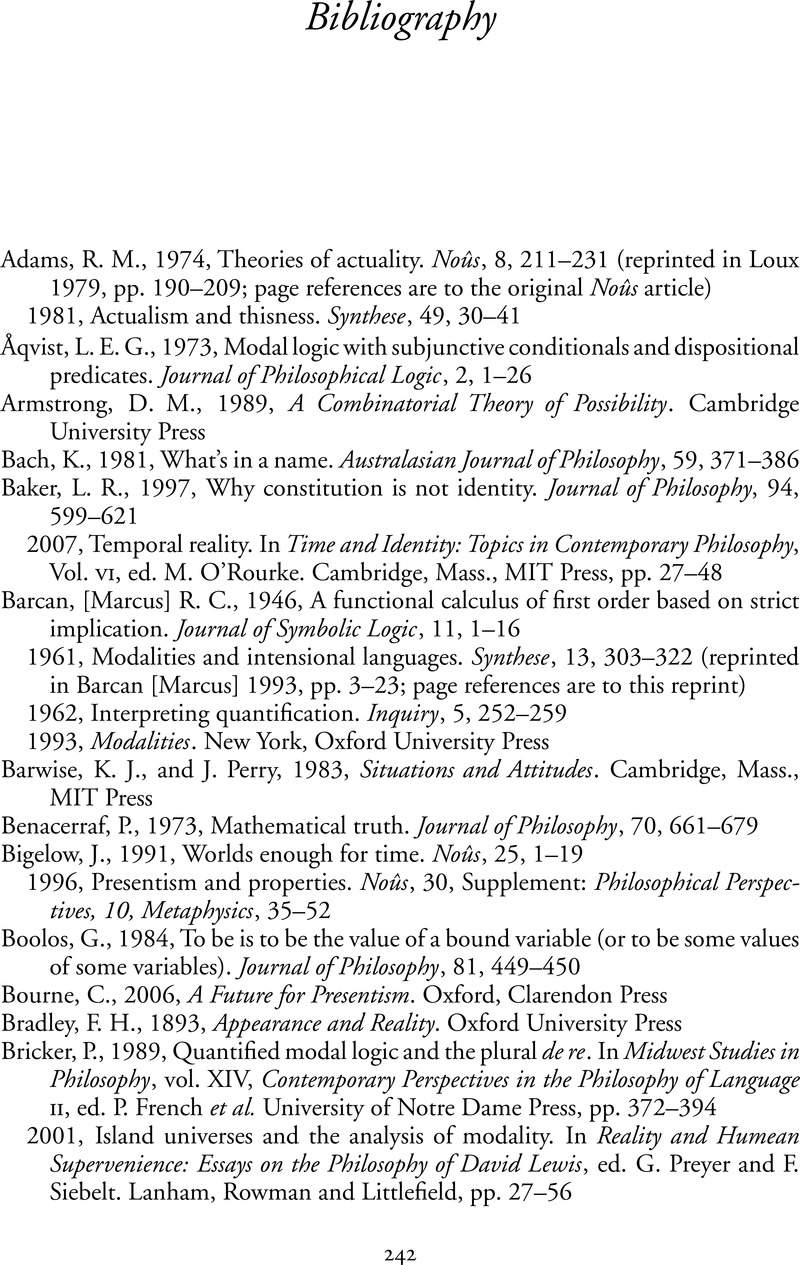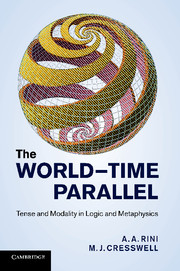Bibliography
Published online by Cambridge University Press: 05 March 2012
Summary

- Type
- Chapter
- Information
- The World-Time ParallelTense and Modality in Logic and Metaphysics, pp. 242 - 251Publisher: Cambridge University PressPrint publication year: 2012



